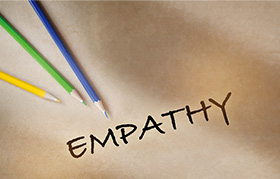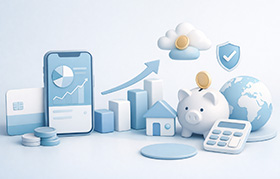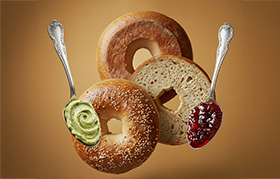
Brain Health App “Descartes”
“Brain Vitamin, Not Medicine”
Easing Dementia Worries with Games
Article at a Glance
The brain health management app “Descartes” successfully validated its market potential by targeting women in their 50s and 60s through the following strategies.
1. It identified a market gap in digital healthcare services for seniors and chose “brain health” as its primary focus, considering customers’ willingness to pay and brand expansion potential.
2. Aiming to shift negative social perceptions about brain health, Descartes positioned its app as a “vitamin” and “fitness service” beneficial for brain health rather than as a treatment.
3. The company developed content that benefits brain health while remaining enjoyable for seniors by leveraging game development expertise and platforms, and actively incorporating gaming principles.
4. Descartes boldly eliminated user experience (UX) elements beyond the basic functionality of YouTube and KakaoTalk to ensure users in their 50s and 60s could navigate the app easily and independently.
Businesses targeting seniors are gaining prominence as the proportion of people 50 and older rapidly grows due to population aging. According to the Ministry of the Interior and Safety, people aged 50 and older accounted for 41.2% of the total registered population as of late June 2021, and will likely exceed half the population within a few years. Unlike previous seniors who relied on their children for retirement support, financially independent “new seniors” who actively pursue hobbies and consumption are expected to emerge as key consumers in the super-aged society.
Despite the growing prominence of the senior industry, few startups offer innovative services specifically targeting this demographic. Why is that? This is because most entrepreneurs are in their 20s and 30s with relatively low interest in or understanding of senior needs. Stereotypes persist that seniors cannot easily adapt to new mobile-based digital services. However, in recent years, people in their 50s and 60s have rapidly adapted to mobile services. The Korean Consumer Agency’s 2021 Consumer Life Indicators survey shows digital consumption among people in their 60s reached 57.6%, more than ten times the 5.6% recorded in 2019. Additionally, a 2021 Gallup Korea survey on media, content and social networking usage found that over 90% of people in their 50s and over 60% in their 60s use mobile messengers like KakaoTalk and platforms like YouTube.
The brain health management app “Descartes” successfully validated its market potential by targeting women in their 50s and 60s through the following strategies.
1. It identified a market gap in digital healthcare services for seniors and chose “brain health” as its primary focus, considering customers’ willingness to pay and brand expansion potential.
2. Aiming to shift negative social perceptions about brain health, Descartes positioned its app as a “vitamin” and “fitness service” beneficial for brain health rather than as a treatment.
3. The company developed content that benefits brain health while remaining enjoyable for seniors by leveraging game development expertise and platforms, and actively incorporating gaming principles.
4. Descartes boldly eliminated user experience (UX) elements beyond the basic functionality of YouTube and KakaoTalk to ensure users in their 50s and 60s could navigate the app easily and independently.
Businesses targeting seniors are gaining prominence as the proportion of people 50 and older rapidly grows due to population aging. According to the Ministry of the Interior and Safety, people aged 50 and older accounted for 41.2% of the total registered population as of late June 2021, and will likely exceed half the population within a few years. Unlike previous seniors who relied on their children for retirement support, financially independent “new seniors” who actively pursue hobbies and consumption are expected to emerge as key consumers in the super-aged society.
Despite the growing prominence of the senior industry, few startups offer innovative services specifically targeting this demographic. Why is that? This is because most entrepreneurs are in their 20s and 30s with relatively low interest in or understanding of senior needs. Stereotypes persist that seniors cannot easily adapt to new mobile-based digital services. However, in recent years, people in their 50s and 60s have rapidly adapted to mobile services. The Korean Consumer Agency’s 2021 Consumer Life Indicators survey shows digital consumption among people in their 60s reached 57.6%, more than ten times the 5.6% recorded in 2019. Additionally, a 2021 Gallup Korea survey on media, content and social networking usage found that over 90% of people in their 50s and over 60% in their 60s use mobile messengers like KakaoTalk and platforms like YouTube.
15,000개의 아티클을 제대로 즐기는 방법
가입하면, 한 달 무료!
걱정마세요. 언제든 해지 가능합니다.
- This content was originally written in Korean in the DBR, and translated into English by the original author with the aid of AI
- The DBR has all legal authority over this content. Please note that unauthorized use and distribution may be subject to legal sanctions

Copyright Ⓒ 동아비즈니스리뷰. All rights reserved. 무단 전재, 재배포 및 AI학습 이용 금지
인기기사
 경제·경영 질문은
경제·경영 질문은
Askbiz에게 물어보세요
K-FOCUS TOP 5
K-Business Trends to Watch
회원 가입만 해도, DBR 월정액 서비스 첫 달 무료!
15,000여 건의 DBR 콘텐츠를 무제한으로 이용하세요.










